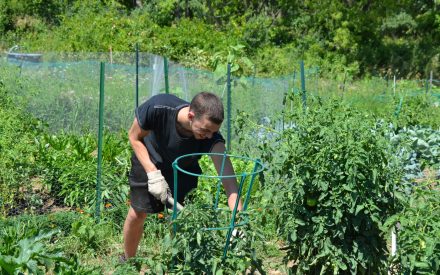In Wisconsin, 7 million acres of field crops, hay and haylage are harvested, at a value of 3.6 billion USD. Those farm operations are the foundation of Wisconsin’s agriculture industry. Although the overall agriculture industry is growing in Wisconsin, the farm operation component has struggled from declining prices in recent years. Multiple years of depressed commodity prices for both dairy and grain farmers have made it difficult for farms to be profitable. Commodity farmers are not able to control the price for which they sell their products. Sound management of production costs is vital, and this is where farmers have the most control of their profitability.
In response, Extension is providing research-based information to producers and certified crop advisors (CCA) related to crop management decisions. Extension partners with the certifying agency to provide continuing education credits for each session topic.
In 2020, decision guides about weed, disease, and insect management were informed and adapted to the season. This led to improved control and strongest economic returns for the producers. Decisions on nutrient types and application methods are adapted based on current market and seasonal conditions. Agronomic practices such as evaluating corn for replant decisions require knowledge to evaluate options.
Producers and agriculture professionals were provided with updated best management recommendations that helped inform decisions to adapt to current conditions.
In response to the pandemic, Extension’s Crops and Soils program formed a team to develop a series of bi-weekly virtual sessions dubbed Badger Crop Connect. Through the program, a total of 1,217 educational contacts were made, with 417 farmers, crop consultants, government agency personnel, agricultural media, and other agriculture service providers.
Due to this program, Wisconsin farmers and agriculture professionals made informed decisions related to crop management, pest management, nutrient management, and agronomic decisions that improve their economic situation and environmental stewardship. Post-session evaluations indicated that the information presented was useful to the audience. Throughout the series, 48% of the participants indicated they were more confident in implementing the information into their operations.
Learn more at cropsandsoils.extension.wisc.edu.
Download Article

 Supporting Safe & Sustainable Gardening
Supporting Safe & Sustainable Gardening Connecting Farmers, Gardeners and Food Pantries to make Healthy Produce Accessible to all Wisconsin Residents
Connecting Farmers, Gardeners and Food Pantries to make Healthy Produce Accessible to all Wisconsin Residents Sustainability & Profitability of Beef Production
Sustainability & Profitability of Beef Production Business Planning for Profitable, Safe Farms
Business Planning for Profitable, Safe Farms


